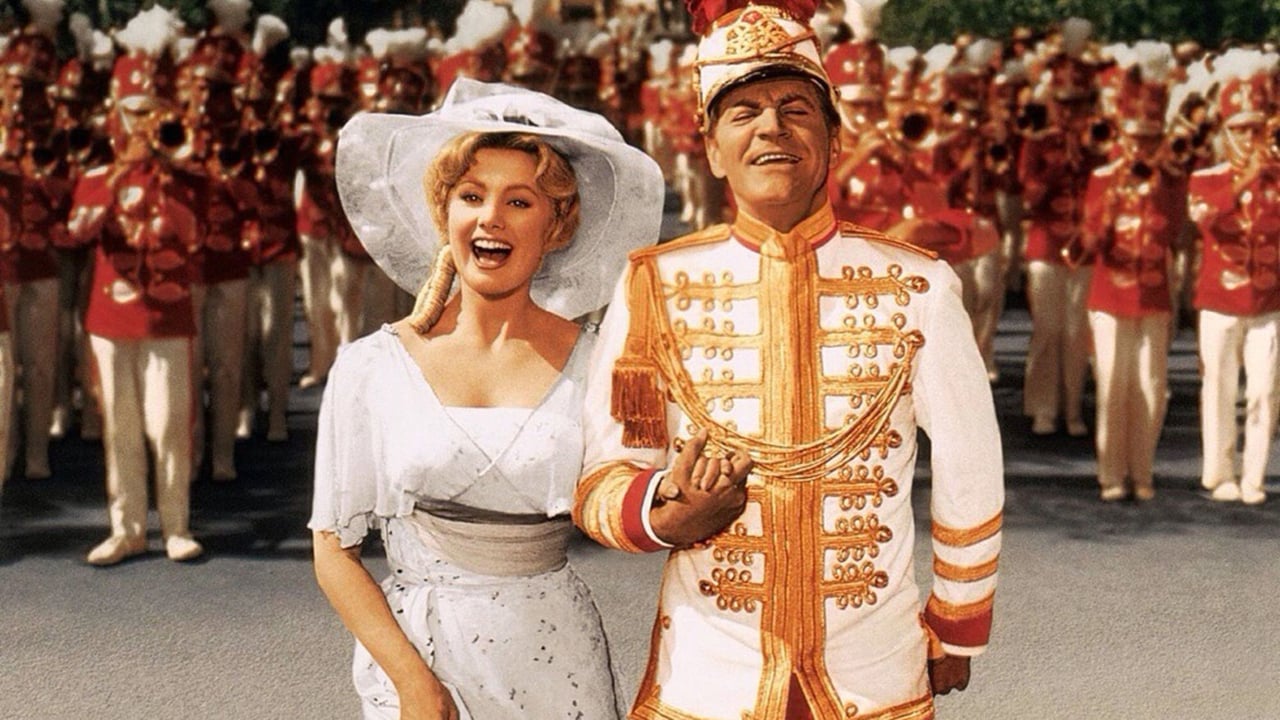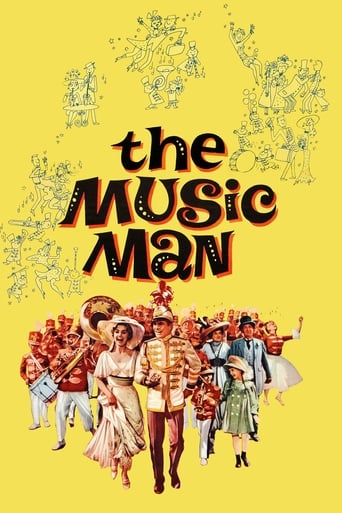

I just watched this movie again on TV (06/2018) and it's still a terrific movie. Although a couple of the songs are forgettable, the production puts this movie way above most other musicals. The "76 Trombone" scene for one is just tremendous. And one of my favorite production numbers of all musicals is "Lady Librarian". I can watch that scene over & over again. Not sure about the rest of you, but I think Shirley Jones was under-appreciated for her singing voice! What to say about Robert Preston? I still can't believe he wasn't at least nominated for an Oscar for his performance! Oh, a great tidbit is how the composer, Meredith Willson and his estate, made more money from royalties on The Beatles' recording of "Till There Was You" than they did on the musical and the movie! Amazing! If you get a chance to watch this with your family, I recommend it.
... View MoreI first saw "The Music Man" in 1964. I was moved by Shirley Jone's rendition of "Goodnight My Someone." I started praying "to my someone" nightly. In August 1970 I met the woman whom I married in May 1972. We recently celebrated our 46th wedding anniversary. I whole heartily believe that this song was instrumental in my long marriage.
... View MoreConfidence man Harold Hill arrives at staid River City intending to cheat the community with his standard scam of offering to equip and train a boy's marching band, then skip town with the money since he has no music skill anyway. Things go awry when he falls for a librarian he tries to divert from exposing him while he inadvertently enriches the town with a love of music.This movie gets points for having Opie Taylor (Ron Howard), even if it had nothing else going for it. But it actually has some pretty good songs. Most are not well known, but some are (like "76 Trombones") and some should be ("Marian the Librarian").This may not be my favorite musical (I am not sure what would be), but it is quite a bit better than a lot of them out there, and seems to be generally not as well known. Probably because of the lack of big stars. And that is a shame, because this is really quite the story.
... View MoreIt's 1912 when (Professor) Harold Hill (played by Robert Preston) visits River City, Iowa. Although he appears to be a salesman, he is actually a con man with a well-rehearsed plan for parting the townsfolk and their money. He proposes to give the small town a rousing, glittering, breathtaking marching band. All they have to do is buy the instruments and the uniforms and Professor Hill will do the rest.During his stay in River City, Hill becomes enamored of the town librarian, Marian (played by Shirley Jones). She has a young brother named Winthrop (Ron Howard) who, due to a lisp, is socially awkward. As Hill's plans take form, he eventually has second thoughts about conning Marian. Will he make the evening train with the town's cash in his pocket? Or will his feelings for Marian trip him up?Other reviewers have lavished praise upon this musical and its star, Robert Preston. The kudos are warranted. The film does a good job of recreating an ideal small American town and the music is very entertaining. Preston surely captures the sing-song shill of the shyster and he is as slippery as fish oil. The wonderful voice of Shirley Jones elevates the production, while other roles are delightfully cast with Buddy Hackett, Hermione Gingold, Paul Ford and others.One aspect of this musical sets it apart from most others. You will note that most musicals--from "Oklahoma!" to "Carousel" include a darker element--a character who adds danger or ill intent--or a theme that is not cheerful, e.g. racism in "South Pacific" or Nazism in "The Sound of Music". The closest thing "The Music Man" has to this is the shady character of Harold Hill, but the story deflects any darkness with its cheerful tunes and comic diversions. As a result, the film remains upbeat throughout.Preston's performance of "Ya Got Trouble" is iconic and one of the best numbers in musical history.
... View More